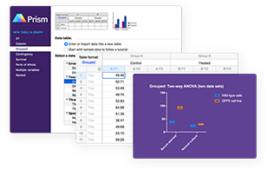1st International Conference Covers all Aspects of Green Computing
 |
Last August 2010, the first International Green Computing Conference (IGCC) took place in Chicago, IL, with the theme “Sustainable Computing and Computing for Sustainability.” The conference, sponsored by IEEE Computer Society, was born with the objective to become a reference on research that is being conducted on green computing, as well as to provide an open forum for researchers, engineers and practitioners around all aspects of green computing.
The green computing concept draws together any initiative to build environmentally sustainable computing. It covers a wide range of areas:
• energy-efficient hardware
• design of algorithms and systems to reduce energy consumption
• usage of IT to contribute to environment improvement
• how to reduce the carbon footprint of computing
• other related topics
This wide range of areas was clearly reflected in the research papers presented in the main conference, as well as the workshops organized in conjunction with IGCC. The papers focused on all areas of interest related with green computing, ranging from hardware to application-level through low-level schedulers or frameworks to manage huge virtualized data centers.
Presentations
The idea of designing frameworks to manage the most common every-day virtualized data centers was extensively presented. Since data centers are major energy consumers, it becomes mandatory to conduct any strategy to design and manage these IT infrastructures in a more environmentally sustainable way. The approaches presented were varied:
• frameworks ready to buy on-demand energy to reduce the amount of “brown energy” bought
• reduction of the CPU frequency
• how to proactively provision virtual machines to maximize energy efficiency without violating any service-level agreement with customers.
All approaches clearly showed the improvements made in achieving energy-efficient data centers.
Another interesting approach widely studied and presented during IGCC was how to adjust the frequency and voltage of CPUs and cores (in multicore infrastructures) according to the workload in order to reduce the energy consumed without too much penalty to the performance. Related with this approach, the temperature achieved by the servers also was studied. Since, if the systems are cooler, the energy consumed by the A/C machines also would be lower.
However, not all approaches were focused on efficient energy from the perspective of the architecture or framework. Interesting and relevant research was presented to evaluate algorithms and how to redesign them to reduce the energy consumed, taking into account that multicore infrastructures allow different cores with different frequencies to execute different tasks — or even new network packet schedulers to reduce the energy needed by the network components to make communication possible.
On the other hand, there were several studies to analyze the energy consumed by different devices and how new devices could reduce the energy consumed by systems. One example is a study where the authors analyze and model the energy consumption by graphics processing units to predict the consumption according to different tasks.
There also were papers focused on evaluating the usage of solid state disks to reduce storage system energy consumption. The solid state disks’ consumption was reduced due to the architecture presented. In addition, several studies tried to analyze the study’s benefits to build on them in order to design new energy-efficient sorting algorithms or caching mechanisms.
Around high performance computing (HPC), different presentations focused on reducing energy consumption by reallocating the jobs and the workload to reduce energy efficiently.
However, not all approaches were focused on data centers, hardware or HPC environments. Some proposed ideas also looked at daily technology used in our homes. The most interesting approach was focused on a study to evaluate the possibility to know in real time whether someone is viewing a TV or computer monitor and to determine whether or not to continue showing the image. This approach could reduce the energy consumed at home.
Workshops
Finally, three workshops were
conducted during the conference:
• one workshop focused on power management in data centers
• another focused on design of new architectures with low-power systems
• an open forum for discussion of different works in progress was conducted
The work in progress workshop was a great opportunity for researchers, engineers and practitioners to share their current works and obtain important feedback about them. They could obtain constructive criticism to improve and, in some cases, redirect their current research. The works presented were focused on the same wide range of areas showed during the main conference.
However, the main area of work in progress works was focused on reducing the energy cost in data centers or grid and cloud computing. This highlighted the importance of reducing the energy consumption of these types of infrastructures, as well as their impact on global energy consumption and on global warming.
Summary
After reviewing all of the papers that were presented during the three days of conference, as well as the workshops that were conducted in conjunction with the conference, I sincerely believe that this first IGCC succeeded at collecting together important progress that is being achieved in green computing and at making IGCC a reference point for green computing researchers around the world.
I hope to see you next year at IGCC 2011 to share and learn how to design more environmentally sustainable computing infrastructures. This is an important challenge to reduce the consequences of global warming. To conclude, I would like to invite the reader to visit the conference Web site to obtain more details about the papers presented. I also would like to take this opportunity to invite all green computing researchers to participate in IGCC 2011.
References
1. IGCC Web site: www.green-conf.org
2. Conferences related to green computing: www.greenit-conferences.org
Javier Alonso López is an assistant professor at the Technical University of Catalonia (UPC), Barcelona, Spain, and an associate researcher at the Barcelona Supercomputing Center – Centro Nacional de Supercomputacion. (BSC-CNS). He may be reached at [email protected].




